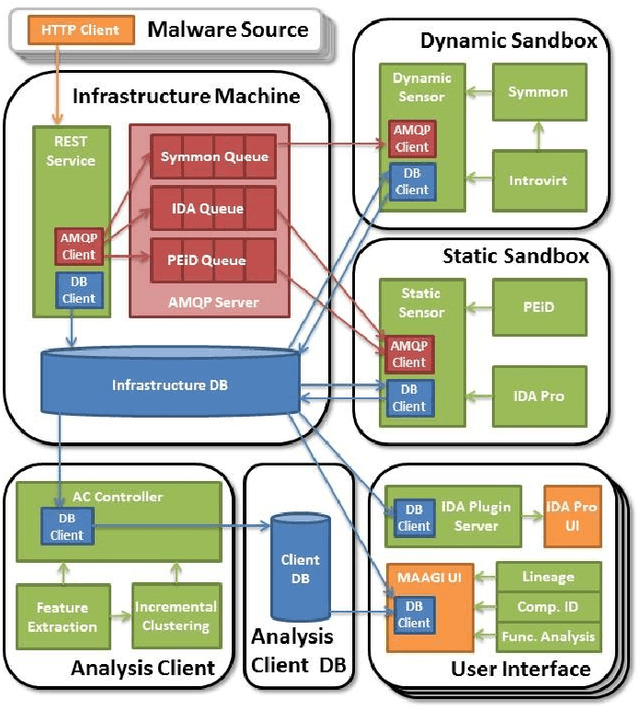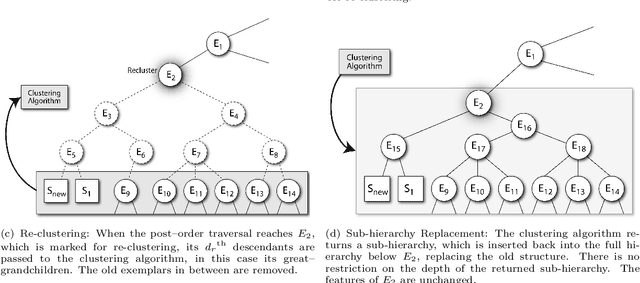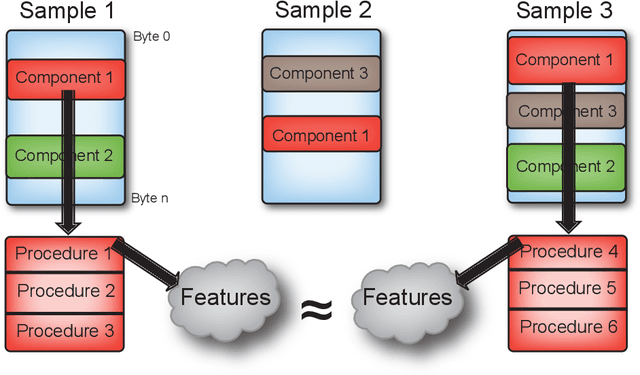Glenn Takata
Artificial Intelligence Based Malware Analysis
Apr 27, 2017



Abstract:Artificial intelligence methods have often been applied to perform specific functions or tasks in the cyber-defense realm. However, as adversary methods become more complex and difficult to divine, piecemeal efforts to understand cyber-attacks, and malware-based attacks in particular, are not providing sufficient means for malware analysts to understand the past, present and future characteristics of malware. In this paper, we present the Malware Analysis and Attributed using Genetic Information (MAAGI) system. The underlying idea behind the MAAGI system is that there are strong similarities between malware behavior and biological organism behavior, and applying biologically inspired methods to corpora of malware can help analysts better understand the ecosystem of malware attacks. Due to the sophistication of the malware and the analysis, the MAAGI system relies heavily on artificial intelligence techniques to provide this capability. It has already yielded promising results over its development life, and will hopefully inspire more integration between the artificial intelligence and cyber--defense communities.
Lazy Factored Inference for Functional Probabilistic Programming
Sep 11, 2015

Abstract:Probabilistic programming provides the means to represent and reason about complex probabilistic models using programming language constructs. Even simple probabilistic programs can produce models with infinitely many variables. Factored inference algorithms are widely used for probabilistic graphical models, but cannot be applied to these programs because all the variables and factors have to be enumerated. In this paper, we present a new inference framework, lazy factored inference (LFI), that enables factored algorithms to be used for models with infinitely many variables. LFI expands the model to a bounded depth and uses the structure of the program to precisely quantify the effect of the unexpanded part of the model, producing lower and upper bounds to the probability of the query.
 Add to Chrome
Add to Chrome Add to Firefox
Add to Firefox Add to Edge
Add to Edge